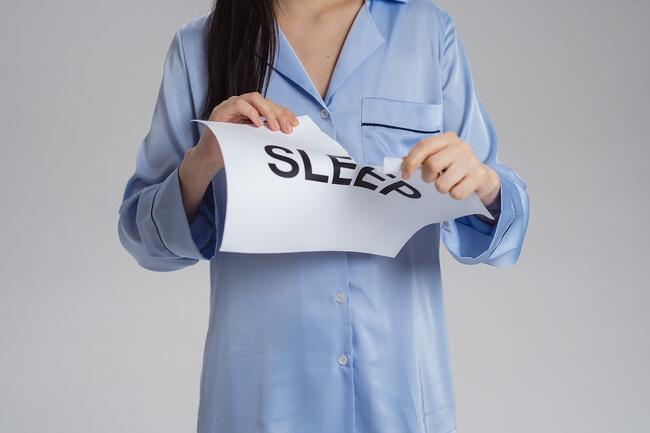
The quality of your sleep can truly make or break the remainder of your day. You may not be very aware of it, but lack of sleep or poor quality of it can alter your mood, motivation, and energy levels. However, getting a good night’s sleep is not as simple as going to bed at a reasonable hour. It’s all about planning your nighttime routine while making sure you avoid things you should not be doing before going to sleep. If you are unsure where to begin, keep reading to learn more about how to get the most out of each night’s sleep.
1. Use any kind of electronics
According to a wealth of evidence, looking at the blue and white light emitted by digital screens hinders your brain from producing melatonin. This hormone tells your body when it’s time to sleep. As a result, falling and staying asleep becomes more difficult, no matter what sort of comfortable mattress you may have. To better your sleep, put away your devices two hours before bedtime, set them on silent, and let your body and mind relax.
This being said it is important to note that most people feel addicted to their devices. With technology at our fingertips, it has become both a source of amusement and a distraction from the world around us. However, there are other ways you can unwind before drifting off to sleep. You should create a routine that gets you relaxed without being stimulated. For example, you may journal each night before bed or take up a relaxing hobby.
2. Try to solve issues or make plans
A clouded mind filled with racing thoughts is something most people can relate to. It is difficult to truly put worries aside in order to have a good sleep; however, it is a necessary step. You may not feel you can put the world on pause, but you can. You can solve issues or make plans in the morning, but for now, you can simply relax.
When possible, do not engage in any kind of unpleasant conversation with anyone. Although most people advise against going to bed angry, there are instances when you may need to disregard this advice and allow yourself to sleep so that you may communicate more the next day. Simply said, anything you couldn’t solve before your bedtime routine starts should be left for another time.
The best solution to a stressed-out mind is to create a calming routine that gets you into a proper headspace. You may meditate, think about positive things, things you’re grateful for, or repeat mantras that work for you. However, if you are struggling with depression or anxiety, online therapy is the only way you can truly feel at ease before bed. So, reach out to experts capable of helping you change unhealthy habits and lead a better life.
3. Drink caffeine, alcohol, or plenty of water
What you drink prior to sleeping is also a highly important factor to consider. Although you may be aware that caffeinated beverages can make getting a good night’s sleep more difficult, alcoholic drinks are also a problem. While alcohol may help you fall asleep faster, studies show that it causes poor sleep. Your body will focus on metabolizing the alcohol in your system, and this will make you feel restless.
As most people know, hydration is one of the best and most straightforward ways to improve one’s health. Nonetheless, there are moments when you should and should not drink water. Drinking lots of water before bed will make you feel bloated and will make you visit the bathroom during the night. This will, of course, interrupt your sleep, making your sleep quality plummet. The basic remedy to this problem is to avoid drinking anything before going to bed.
4. Eat fatty foods
Due to busy schedules and long days, eating a late dinner or munching on comfort foods in the evening may feel necessary. Some days you may feel like the only thing that can get you through the night is that bag of chips just waiting on you. Unfortunately, these late-night snacks can significantly disrupt your sleep. Eating later in the evening might throw off your circadian clock and make sleep disorders like obstructive sleep apnea worse. Fatty foods, specifically, have been linked to less time spent in the REM stage of sleep.
It may be difficult to break the habit, but your peaceful night’s sleep will be well worth it. To start, you can create a habit of an earlier dinner. If you are busy, you may even start to meal-prep. Once you’re comfortable with that, you can have healthy snack options on the side when you need a simple pick-me-up. Healthy bedtime snack options consist of fruits, whole-grain options, and protein.
5. Work before bed
In this day and age, we all seem to feel the need to continually work towards our goals. The working hustle seems to never stop. This type of mindset leads to stressed-out people not knowing how to let themselves rest. We all need a break, and nights are made for such occasions.
Resist the urge to check your inbox; now is not the time for it. Work emails can wait till tomorrow, regardless of what’s going on; for now, you need to rest your brain so it can function better tomorrow. Thoughts on what should be done, what went wrong, and how to fix it will have to wait until a later time. Also, avoid working from your bed because this will make it more difficult to associate your bed with relaxation. What you could do is make your bed irresistibly comfortable by getting a really good mattress. Consult consumeropinion.org for reviews on the best options, and with the right mattress, you will be eager to get into bed and relax instead of work.
6. Exercise before going to sleep
Exercise, like drinking water, is vital for our health and well-being. However, it is something you should not be doing before going to sleep. You may believe that exercising will fatigue you and allow you to sleep better, but the movement can stimulate your mind and body, causing you to be more awake. It’s important to time your workout so that you get the benefits of exhaustion without the elevated heart rate and body temperature. If you prefer light exercises, now is the best time to do some stretches or yoga to further relax your body and mind before drifting off to sleep.
Everyone is aware of the fact that you need plenty of sleep. Typically seven to nine hours is recommended. However, it isn’t just the quantity of sleep that counts. It’s also the quality. If you’re struggling to get pristine slumber while you’re in bed, you may need to take steps to improve your sleep hygiene — that is, the habits and practices that consistently help you sleep well.
Sleep has always been an important part of the human experience. In the modern era, though, there are countless things that can distract us while we sleep. Everything from a lack of routines to bad habits can interfere with a good night’s rest. In addition, things like flexible work schedules and countless electronic forms of entertainment can make consistent sleep feel impossible.
That’s why it’s important to be proactive. So consider your current sleep hygiene situation. Look for instability in your routines and shore them up. Strive to create a dedicated, tranquil sleep environment. Root out bad habits related to caffeine and blue light and then correct them. Taking steps like these are some of the best things you can do in the name of a great night’s sleep.
If you feel that you still need help getting the sleep you need, you may have OSA.
Call Alaska Sleep Clinic @ 907-770-9104 today for your free sleep assessment.













